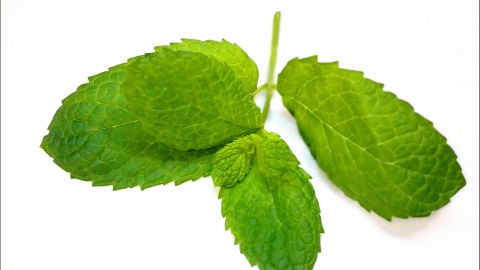Can pregnant women eat mint leaves?
Generally speaking, pregnant women can consume mint leaves, but it is not recommended to eat them excessively. Detailed analysis is as follows:

Mint leaves are rich in nutrients such as vitamin C, vitamin A, potassium, and calcium. Vitamin C can enhance pregnant women's immunity and promote collagen synthesis, benefiting fetal skin and tissue development. Vitamin A helps maintain normal vision and mucous membrane health and has a positive effect on fetal eye development. Potassium helps regulate electrolyte balance in the body and can help relieve discomfort caused by edema during pregnancy. At the same time, the unique volatile aroma of mint leaves can stimulate gastric juice secretion and improve appetite, especially suitable for pregnant women experiencing reduced appetite due to morning sickness in early pregnancy. The cool taste can also help alleviate bad taste in the mouth and feelings of nausea.
When consuming mint leaves, pregnant women should choose fresh leaves without pesticide residue, and avoid consuming candies, essential oils, or medications containing mint available on the market, as these products may have high concentrations unsuitable for pregnant women. Moreover, diet during pregnancy should primarily be mild and balanced; any addition of special ingredients should be based on professional medical advice.






